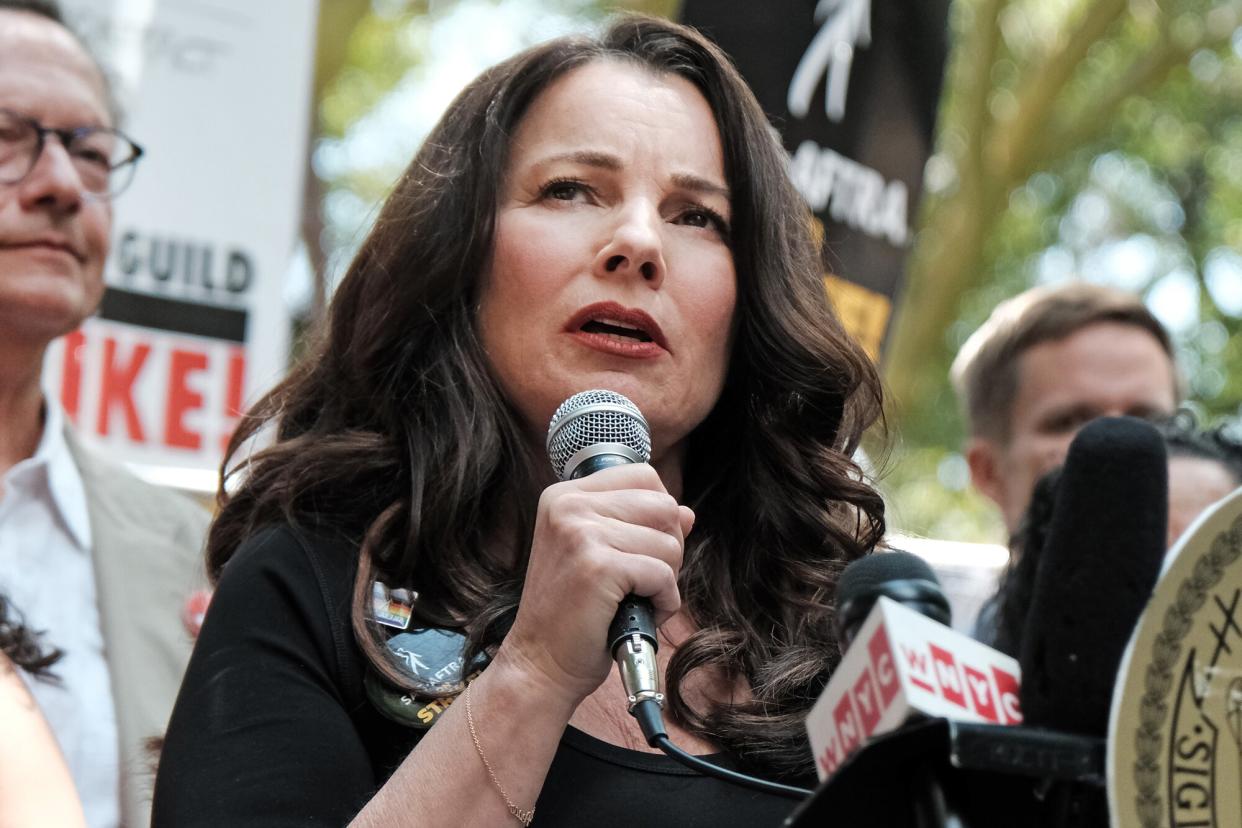Fran Drescher warns LGBTQ stories in film are at risk due to strikes and spread of 'hate and fear'

GLAAD and Fran Drescher, the president of SAG-AFTRA, are voicing concerns that LGBTQ stories in film are at risk due to the actors' and writers' strikes.
"Right now, there's a very tiny but loud segment of our population that's hard at work spreading hate and fear while attempting to squash all storytelling that showcases the full, beautiful reality of the human experience," Drescher said as GLAAD (the Gay & Lesbian Alliance Against Defamation), the world's largest LGBTQ media advocacy organization, issued its annual report highlighting the representation of LGBTQ+ characters in film. "Seeing diverse representation on screen is vital for empowering everyone to embrace their authentic selves."
Drescher continued, "Sadly, the longer the AMPTP companies keep the entertainment industry shut down by refusing to come back to the bargaining table, the more risk there is for disrupting the progress that's been made in terms of inclusive representation."

Spencer Platt/Getty Fran Drescher
Each year, GLAAD's Studio Responsibility Index quantifies the representation of LGBTQ+ characters in film. The latest installment tracked films released in 2022 by 10 distributors. Of the 350 films included, 100 (or, 28.5 percent) featured an LGBTQ character. That's the highest number of films and percentage of total films that GLAAD has tracked in its 11 years of filing the report. However, this year's report expanded its definition of "film" to include streaming services that do not offer theatrical movie releases, making it likely that we would see more films with LGBTQ characters than ever.
GLAAD considered the numbers as progress, but with caveats. More than half (57 percent) of LGBTQ characters had fewer than five minutes of screen time. Moreover, 40 percent of those characters were characters of color, a slight uptick from the 39 percent tracked last year. The report also noted that 21 percent of the inclusive films featured a bisexual character, 12 percent included a transgender character, and 4 percent included an LGBTQ character with a disability. There was just one character in the films who was living with HIV.
Along with Drescher, president and CEO Sarah Kate Ellis warned that a prolonged strike could reverse the progress made. "At a time when the LGBTQ community is under unprecedented cultural and political attacks, it is more important than ever to hold film studios accountable for how our community is represented on screen," Ellis said. "It is crucial that the AMPTP reach a fair deal with striking writers and performers — that these talented creatives can return to work as soon as possible so that the progress made in LGBTQ representation remains on track."
She continued, "LGBTQ stories told through film have a powerful and inextricable link to culture change. With more people than ever now empowered to live authentically and openly, the cost of lost progress in LGBTQ representation on screen means erasure."
The WGA (Writers Guild of America) has been on strike since May 2. The guild seeks fair wages, protection against artificial intelligence disrupting writing practices, more transparent streaming data, better residuals, and more. Most of the WGA's proposals have been swiftly rejected by the AMPTP, the body representing Hollywood's major studios and streaming services.
Want more movie news? Sign up for Entertainment Weekly's free newsletter to get the latest trailers, celebrity interviews, film reviews, and more.

 Yahoo News
Yahoo News 
